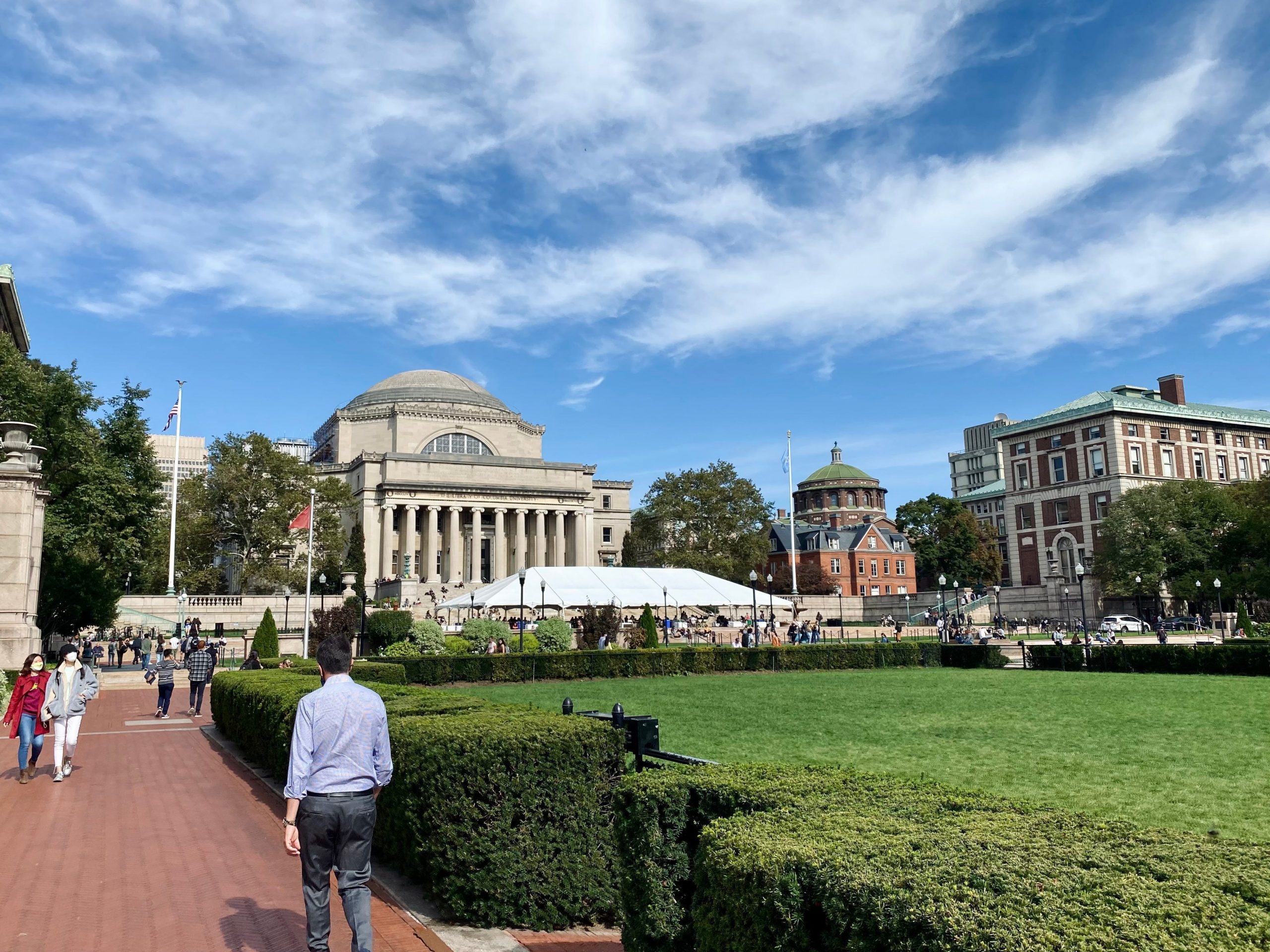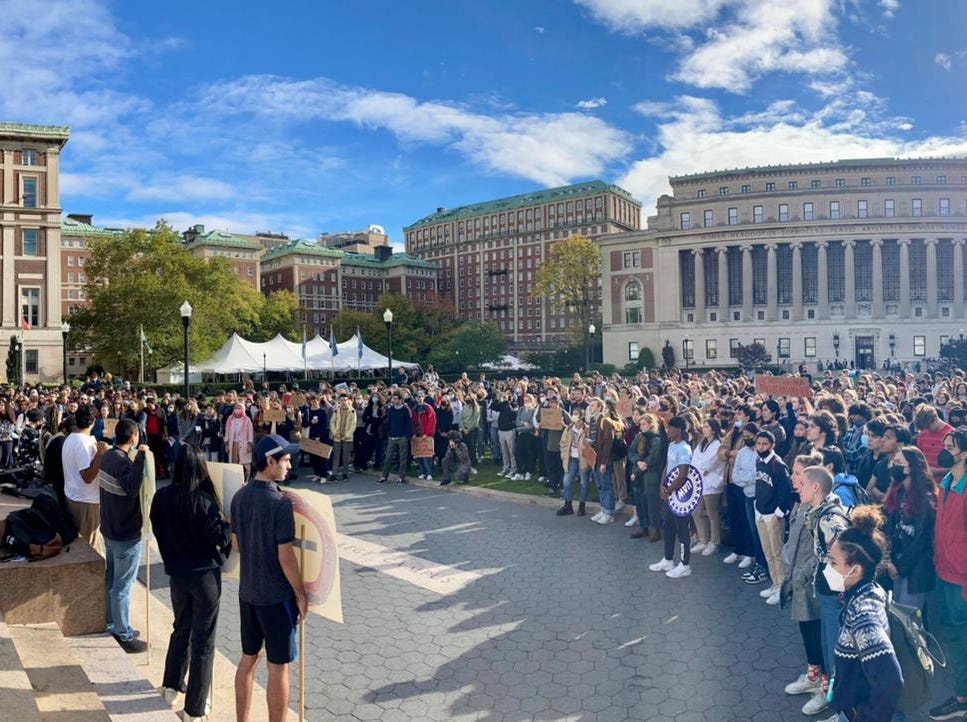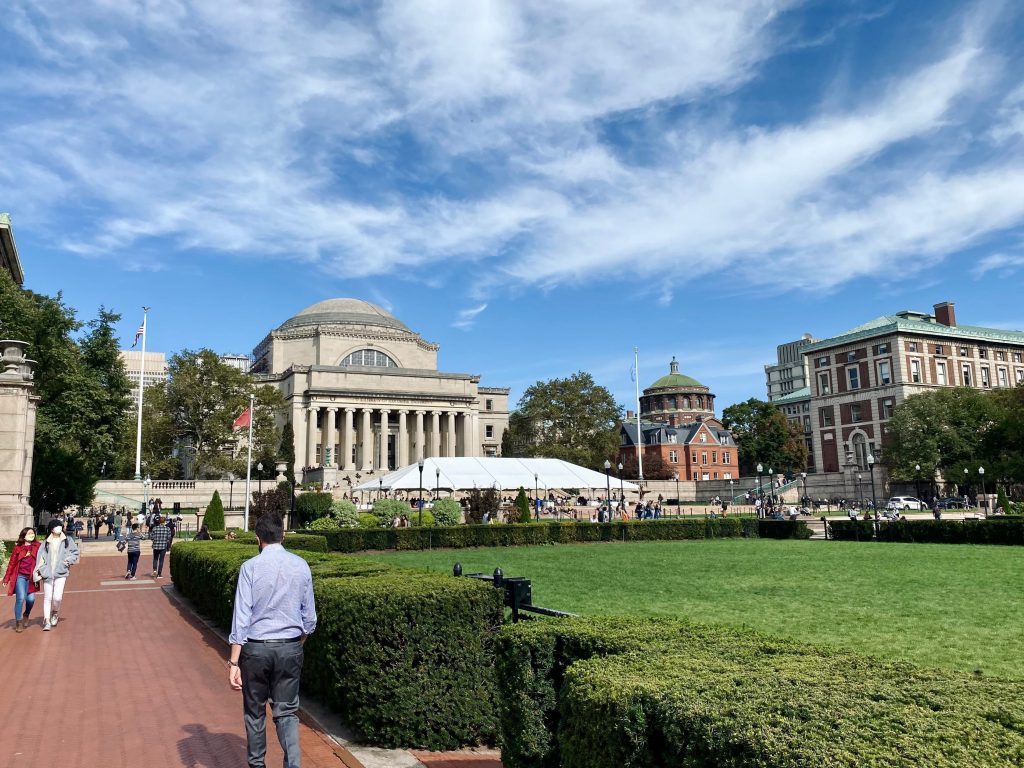
Phil Rosen/Insider
- Columbia grad students are on strike after stalled contract negotiations with the school.
- Several students told Insider they were unhappy with the school's change to stipend pay schedules.
- Other student workers said the school had paid them late or missed paychecks entirely.
More and more workers are demanding better treatment – and the wave has reached college campuses.
An indefinite strike organized by the Student Workers of Columbia began on Wednesday at Columbia University after the union and administrators failed to reach an agreement in bargaining meetings on Monday and Tuesday.
The strike – the fourth in four years – is the latest development in a string of battles between graduate students and one of the most prestigious universities, including an unfair-labor-practices charge the union filed in September.
This summer the university announced a change to stipend pay schedules for graduate student workers, opting to distribute stipends semimonthly as opposed to in two lump sums at the start of the fall and spring semesters.
The school said the change was to bring uniformity to student-worker compensation by paying stipends on the same schedule as student wage payrolls, the Columbia Daily Spectator reported. Graduate student workers and the SWC argued that the change was in retaliation for the previous semester's strike over contract negotiations and that it could put many students in debt.
Graduate students told Insider the lump sum the school previously provided covered costs like moving and security deposits for the start of the semester. "Money is a lot more tight these days with all our upfront expenses," Nick Olsen, a doctoral student in chemical physics, said.
In a survey conducted by Columbia's Arts and Sciences Graduate Council last year, 54% of respondents said they spent more than 50% of their income on rent.
Graduate student workers also told Insider the school provided a schedule for when they would be paid via the new system. Seven students provided pay stubs and emails showing that the school had been late on payments based on that schedule - one of those workers said they'd received only one of the four checks promised to them so far.
Mandi Spishak-Thomas, a social-work doctoral candidate and member of the bargaining committee, showed Insider emails between her and an administrator in June 2020 in which the admin offered to send a loan via Venmo to Spishak-Thomas after the admin had submitted a timesheet late. (Social-work doctoral candidates were paid semimonthly at the time.)
"So many of us in my department are paid late every semester, it's just become something we assume will happen at this point, and many of us have zero cushion to handle these late payments," Spishak-Thomas said. "I'm lucky I share bills with a partner, but I know a lot of other students have a rough time with making bills as it is, let alone when they're paid late."
The strike is necessary, Spishak-Thomas told Insider, because "it's a fight that will outlast all of us if we can get a real contract in place."

Caroline Phillips
"Our asks are minimal, and cost-wise it's very easy for the university to cover them," said Nadeem Mansour, a humanities doctoral candidate and member of the bargaining committee. "But for us, we're really trying to get people to a living wage," Mansour added.
In a note after Monday's meeting, University Provost Mary C. Boyce detailed the school's counterproposal, which included a $0.50 hourly wage increase, among other salary bumps. Boyce said the faculty had "no higher priority than restoring a normal academic environment" and remained "committed to further enhancements" to support students.
"I believe that a strike is unnecessary and avoidable, and that the priority right now should be to allow negotiations to play out," Boyce wrote.
The union described the university's counteroffer as "unimpressive and insubstantial." It didn't entertain a proposal for neutral, third-party arbitration, which student committee members deemed a nonstarter.
SWC members are determined to strike even though they'd be forfeiting pay and leaving students and classes in a lurch.
"We're trying to put pressure on the administration, but inevitably a lot of the stress falls on the undergraduate students who are paying tuition to be in classes," Olsen said.
Up to 3,000 graduate students are expected to strike. The SWC has said dozens of faculty members have committed to either canceling classes or holding them off-campus or online to respect picket lines.
"Generally, the students I talk to are really supportive because they are aware of the difficulties graduate students are facing," Olsen said.
"We get characterized as irrational, but we're really just asking to survive in New York City," Ethan Jacobs, a philosophy doctoral candidate and member of the bargaining committee, added.
Columbia declined to offer comment on the strike and bargaining sessions. In response to late payments, the school pointed to its payment policies on its website.
